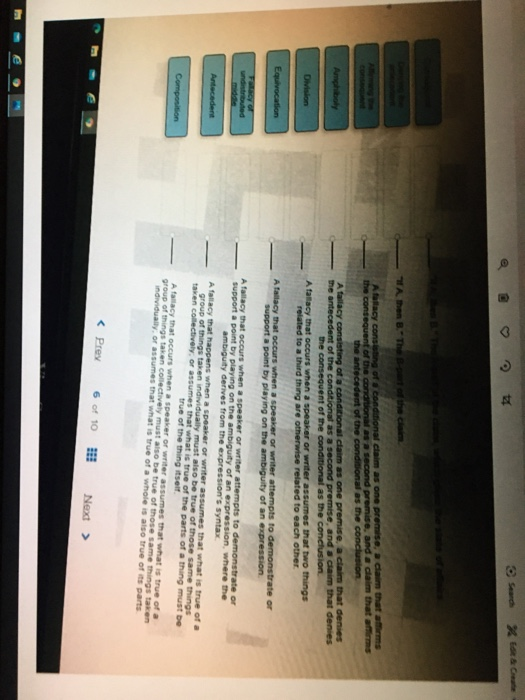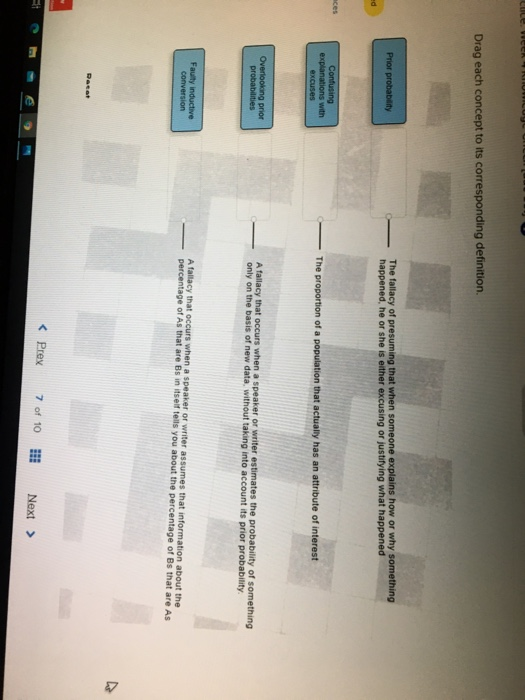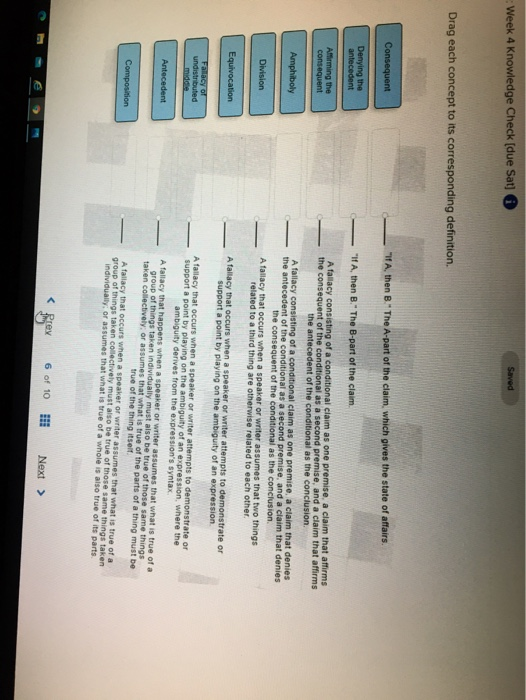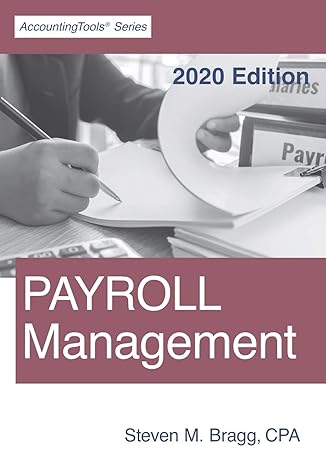Answered step by step
Verified Expert Solution
Question
1 Approved Answer
4 HA then B. The the claim A fallacy consting of a conditional claim as one premise, claim that arms the consequent of the conditional



 4 HA then B. The the claim A fallacy consting of a conditional claim as one premise, claim that arms the consequent of the conditional as a second premise, and a claim that aims the antecedent of the conditional as the conclusion Amphiboly A fallacy consisting of a conditional claim as one premise, a claim that denies the antecedent of the conditional as a second premise, and claim that denies the consequent of the conditional as the conclusion A fallacy that occurs when a speaker or writer assumes that two things related to a third thing are otherwise related to each other Olision Equivocation A fallacy that occurs when a speaker or writer attempts to demonstrate or support a point by playing on the ambiguity of an expression F united Antecedent A fallacy that occurs when a speaker or writer attempts to demonstrate or support a point by playing on the ambiguity of an expression, where the ambiguity derives from the expression's syntax A fallacy that happens when a speaker or writer assumes that what is true of a group of things taken individually must also be true of those same things tamen collectively, or assumes that what is true of the parts of a thing must be true of the thing itself A fallacy that occurs when a speaker or writer assumes that what is true of a group of things taken collectively must also be true of those same things taken individually, or assumes that what is true of a whole is also true of its parts Composition e: Week 4 Knowledge Check (due Sat) Saved Determine the fallacy represented and drag to the correct column. Denying the antecedent Affirming the consequent Rare diseases are very common and hemophagocytic lymphohistiocytosis is a rare disease. Therefore you should be on the lookout for it A dialogue SUE: I'm sorry, Mom I really didn't know I was supposed to be home by ten SUE'S MOM: Stop making excuses, Sue! Division Confusing explanations with excuses Everybody who can legally drink in this state has to be over twenty- one. Sally is over twenty- one. Therefore she can legally drink If it is legal for Sally to drink, then she is over twenty-one. It is not legal for Sally to drink. Therefore she is not over twenty-one Reset Luce ve RWCUY Drag each concept to its corresponding definition Prior probability The fallacy of presuming that when someone explains how or why something happened, he or she is either excusing or justifying what happened ed aces Confusing explanations with excuses The proportion of a population that actually has an attribute of interest Overlooking prior probabilities A fallacy that occurs when a speaker or writer estimates the probability of something only on the basis of new data without taking into account its prior probability Faulty inductive conversion A fallacy that occurs when a speaker or writer assumes that information about the percentage of As that are Bs in itself tells you about the percentage of Bs that are As Roca : Week 4 Knowledge Check (due Sat) Saved Drag each concept to its corresponding definition Consequent "If A, then B." The A-part of the claim, which gives the state of affairs Denying the antecedent "HA, then B." The B-part of the claim Affirming the consequent Amphiboly A fallacy consisting of a conditional claim as one premise, a claim that affirms the consequent of the conditional as a second premise, and a claim that affirms the antecedent of the conditional as the conclusion A fallacy consisting of a conditional claim as one premise, a claim that denies the antecedent of the conditional as a second premise, and a claim that denies the consequent of the conditional as the conclusion A fallacy that occurs when a speaker or writer assumes that two things related to a third thing are otherwise related to each other Division Equivocation A fallacy that occurs when a speaker or writer attempts to demonstrate or support a point by playing on the ambiguity of an expression Fallacy of undistributed midae Antecedent A fallacy that occurs when a speaker or writer attempts to demonstrate or support a point by playing on the ambiguity of an expression, where the ambiguity derives from the expression's syntax A fallacy that happens when a speaker or writer assumes that what is true of a taken collectively, or assumes that what is true of the parts of a thing must be true of the thing itselt A fallacy that occurs when a speaker or writer assumes that what is true of a group of things taken collectively must also be true of those same things taken individually or assumes that what is true of a whole is also true of its parts Composition
4 HA then B. The the claim A fallacy consting of a conditional claim as one premise, claim that arms the consequent of the conditional as a second premise, and a claim that aims the antecedent of the conditional as the conclusion Amphiboly A fallacy consisting of a conditional claim as one premise, a claim that denies the antecedent of the conditional as a second premise, and claim that denies the consequent of the conditional as the conclusion A fallacy that occurs when a speaker or writer assumes that two things related to a third thing are otherwise related to each other Olision Equivocation A fallacy that occurs when a speaker or writer attempts to demonstrate or support a point by playing on the ambiguity of an expression F united Antecedent A fallacy that occurs when a speaker or writer attempts to demonstrate or support a point by playing on the ambiguity of an expression, where the ambiguity derives from the expression's syntax A fallacy that happens when a speaker or writer assumes that what is true of a group of things taken individually must also be true of those same things tamen collectively, or assumes that what is true of the parts of a thing must be true of the thing itself A fallacy that occurs when a speaker or writer assumes that what is true of a group of things taken collectively must also be true of those same things taken individually, or assumes that what is true of a whole is also true of its parts Composition e: Week 4 Knowledge Check (due Sat) Saved Determine the fallacy represented and drag to the correct column. Denying the antecedent Affirming the consequent Rare diseases are very common and hemophagocytic lymphohistiocytosis is a rare disease. Therefore you should be on the lookout for it A dialogue SUE: I'm sorry, Mom I really didn't know I was supposed to be home by ten SUE'S MOM: Stop making excuses, Sue! Division Confusing explanations with excuses Everybody who can legally drink in this state has to be over twenty- one. Sally is over twenty- one. Therefore she can legally drink If it is legal for Sally to drink, then she is over twenty-one. It is not legal for Sally to drink. Therefore she is not over twenty-one Reset Luce ve RWCUY Drag each concept to its corresponding definition Prior probability The fallacy of presuming that when someone explains how or why something happened, he or she is either excusing or justifying what happened ed aces Confusing explanations with excuses The proportion of a population that actually has an attribute of interest Overlooking prior probabilities A fallacy that occurs when a speaker or writer estimates the probability of something only on the basis of new data without taking into account its prior probability Faulty inductive conversion A fallacy that occurs when a speaker or writer assumes that information about the percentage of As that are Bs in itself tells you about the percentage of Bs that are As Roca : Week 4 Knowledge Check (due Sat) Saved Drag each concept to its corresponding definition Consequent "If A, then B." The A-part of the claim, which gives the state of affairs Denying the antecedent "HA, then B." The B-part of the claim Affirming the consequent Amphiboly A fallacy consisting of a conditional claim as one premise, a claim that affirms the consequent of the conditional as a second premise, and a claim that affirms the antecedent of the conditional as the conclusion A fallacy consisting of a conditional claim as one premise, a claim that denies the antecedent of the conditional as a second premise, and a claim that denies the consequent of the conditional as the conclusion A fallacy that occurs when a speaker or writer assumes that two things related to a third thing are otherwise related to each other Division Equivocation A fallacy that occurs when a speaker or writer attempts to demonstrate or support a point by playing on the ambiguity of an expression Fallacy of undistributed midae Antecedent A fallacy that occurs when a speaker or writer attempts to demonstrate or support a point by playing on the ambiguity of an expression, where the ambiguity derives from the expression's syntax A fallacy that happens when a speaker or writer assumes that what is true of a taken collectively, or assumes that what is true of the parts of a thing must be true of the thing itselt A fallacy that occurs when a speaker or writer assumes that what is true of a group of things taken collectively must also be true of those same things taken individually or assumes that what is true of a whole is also true of its parts Composition




Step by Step Solution
There are 3 Steps involved in it
Step: 1

Get Instant Access to Expert-Tailored Solutions
See step-by-step solutions with expert insights and AI powered tools for academic success
Step: 2

Step: 3

Ace Your Homework with AI
Get the answers you need in no time with our AI-driven, step-by-step assistance
Get Started


